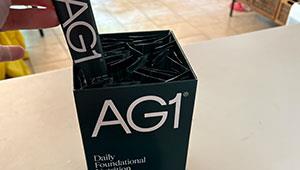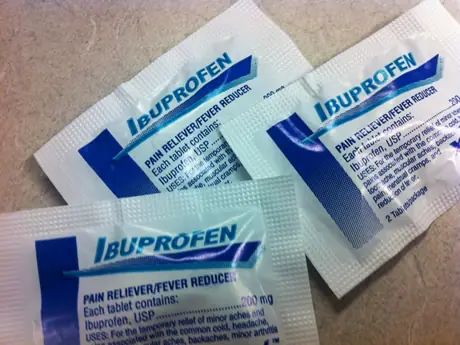Vitamin B12
Consider B12 the guardian of your gray matter: In a British study, older people with the lowest levels of B12 lost brain volume at a faster rate over a span of 5 years than those with the highest levels.
The shortfall: Even though most men do consume the daily quota of 2.4 micrograms, the stats don't tell the whole story. "We're seeing an increase in B12 deficiencies due to interactions with medications," says Katherine Tucker, Ph.D., director of a USDA program at Tufts University. The culprits: acid-blocking drugs, such as Prilosec, and the diabetes medication metformin.
Hit the mark: You'll find B12 in lamb and salmon, but the most accessible source may be fortified cereals. That's because the B12 in meat is bound to proteins, and your stomach must produce acid to release and absorb it. Eat a bowl of 100 percent B12-boosted cereal and milk every morning and you'll be covered, even if you take the occasional acid-blocking med. However, if you pop Prilosec on a regular basis or are on metformin, talk to your doctor about tracking your B12 levels and possibly taking an additional supplement.
Potassium
Without this essential mineral, your heart couldn't beat, your muscles wouldn't contract, and your brain couldn't comprehend this sentence. Why? Potassium helps your cells use glucose for energy.
The shortfall: Despite potassium's can't-live-without-it importance, nutrition surveys indicate that young men consume just 60 percent to 70 percent of the recommended 4,700 mg a day. To make matters worse, most guys load up on sodium: High sodium can boost blood pressure, while normal potassium levels work to lower it, says Lydia A. L. Bazzano, M.D., Ph.D., an assistant professor of epidemiology at Tulane University.
Hit the mark: Half an avocado contains nearly 500 mg potassium, while one banana boasts roughly 400 mg. Not a fan of either fruit? Pick up some potatoes — a single large spud is packed with 1,600 mg.
Iodine
Your thyroid gland requires iodine to produce the hormones T3 and T4, both of which help control how efficiently you burn calories. That means insufficient iodine may cause you to gain weight and feel fatigued.
The shortfall: Since iodized salt is an important source of the element, you might assume you're swimming in the stuff. But when University of Texas at Arlington researchers tested 88 samples of table salt, they found that half contained less than the FDA-recommended amount of iodine. And you're not making up the difference with all the salt hiding in processed foods —U.S. manufacturers aren't required to use iodized salt. The result is that we've been sliding toward iodine deficiency since the 1970s.
Hit the mark: Sprinkling more salt on top of an already sodium-packed diet isn't a great idea, but iodine can also be found in a nearly sodium-free source: milk. Animal feed is fortified with the element, meaning it travels from cows to your cereal bowl. Not a milk man? Eat at least one serving of eggs or yogurt a day; both are good sources of iodine.
- 2
- of
- 2








Discuss This Article